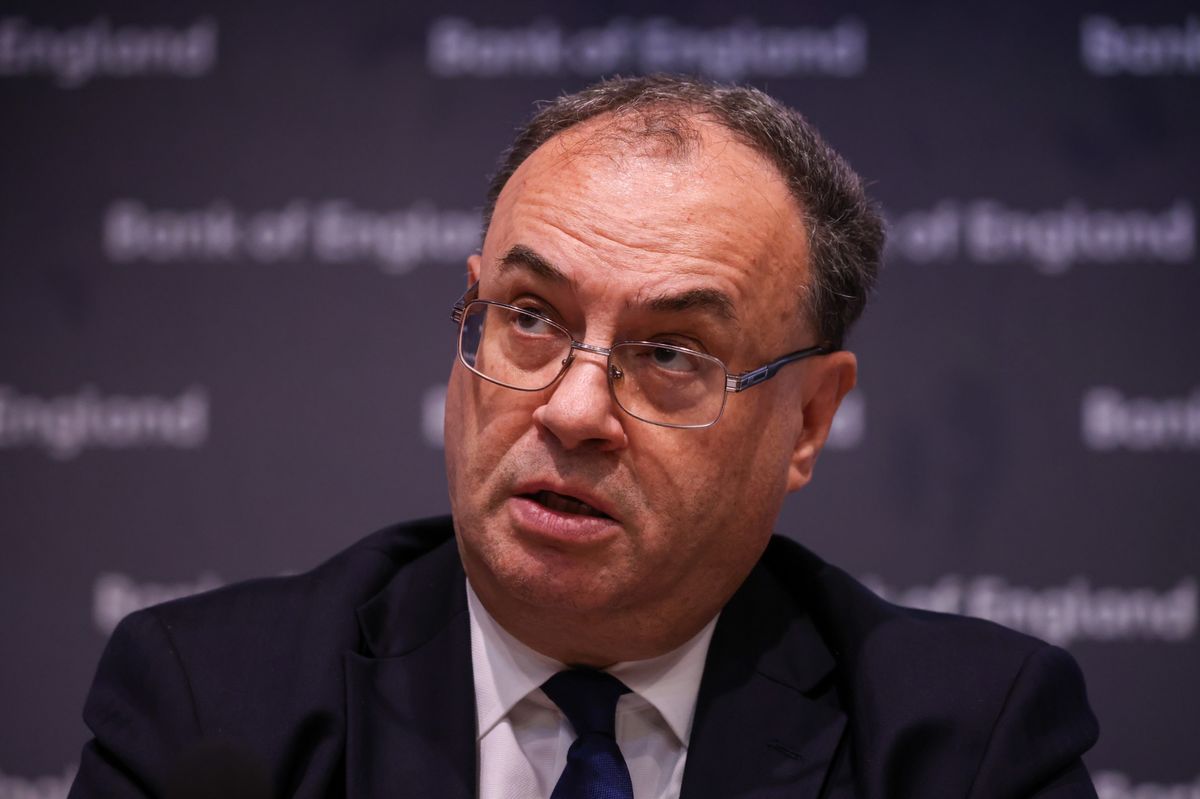Why did many central banks intervene in the market?
Just recently we’ve seen two instances of intervention: FX intervention by the Bank of Japan (BoJ) and Bank of England (BoE) intervention in the gilt market.

Once the gilt market stabilises, the BoE will step back and return to its plan to sell gilts. Photo: BoE Governor
>> How did Japan begin FX intervention?
As usual, many decry such actions as a waste of time but, in the end, widespread intervention may be the only way out.
What sort of intervention are we talking about? To explain this, we need to look back and investigate the sorts of intervention policymakers have done in the past. For while recent BoJ intervention was the first time the bank had acted to defend the currency since 1998, there’s been huge intervention in global bond markets dating back to the global financial crisis of 2008 and it is still ongoing today. So, intervention has been commonplace; just not in the currency market.
And while FX intervention is often sterilised so that it has no monetary implications, the very point of quantitative easing, of course, has been to ease monetary conditions at a time when the space to cut policy rates has been limit ed. Few would argue that this intervention has been ineffective. Of course, others would say that it has been ‘too’ effective because it is part of the reason why there is such high inflation today.
Central banks have been able to go down the quantitative easing path in the past because inflation was not just low; it was too low. Now the situation is very different; inflation is much too high. This cuts off the quantitative easing route should central banks need to aid their economies.
Of course, we’ve just seen the BoE flip-flop and buy gilts while postponing its plans to sell bonds under its quantitative tightening strategy. But this is being done to avoid dislocation at the long end of the gilt market; it is not part of some new long-term quantitative easing strategy.
Once the gilt market stabilises, the BoE will step back and return to its plan to sell gilts. Other central banks too that have bought bonds in the past will be unable to engineer a volte face as long as inflation is high and rates are being raised. For financial asset prices this is a major problem because central bank bond intervention in the past has not just bailed out holders of assets like bonds and stocks, but positively given investors a reason to lift their holdings as QE increased.
Today, this avenue is closed off and asset prices are slumping as a result. That’s not a big problem as some wealth destruction is required to help bring global demand into balance with (weakened) global supply. But if the fall in asset prices becomes extreme, and starts to have very adverse economic connotations, policymakers will feel compelled to respond (as the BoE has done).
>> Will the 1970s sterling crisis happen again?
Again, this might not be too problematic if tensions in markets such as gilts can be contained and don’t spread to other assets. But if the strains become more widespread and extreme, with very adverse economic implications, there may be a need for policymakers to respond in a more determined and coordinated way.
Mr. Steve Barrow, Head of Standard Bank G10 Strategy, said should long-term intervention in the bond market remain off limit s because of surging inflation, as seems likely, it may be that policymakers will have to try to ease global financial strains through FX intervention and, more specifically, selling dollars. For this intervention can be done in a way that does not have adverse inflationary effects. Those countries outside the US will see a lower dollar help ease import costs and so reduce inflation. This might come at a cost of higher inflation in the US as the weaker dollar lifts import prices. But the US primarily conducts its imports and exports in dollars and other currencies do not really come into the equation. This means that its inflation rate is quite well insulated from any falls in the dollar.
“Despite this, we dare say that the US, and some others will only be dragged to the FX intervention table kicking and screaming – and presumably not before the dollar has risen a lot further than it has so far. Nonetheless we feel that widespread coordinated intervention is just a matter of time”, said Mr. Steve Barrow.








